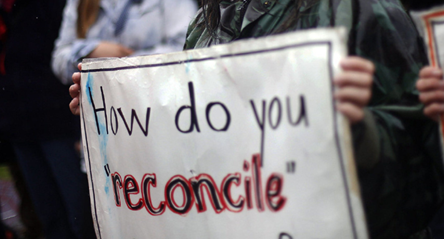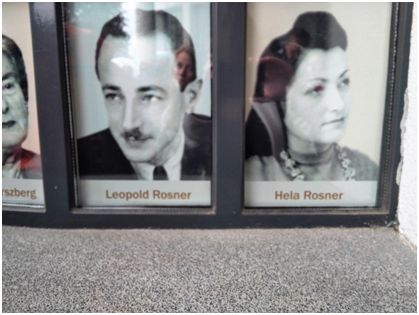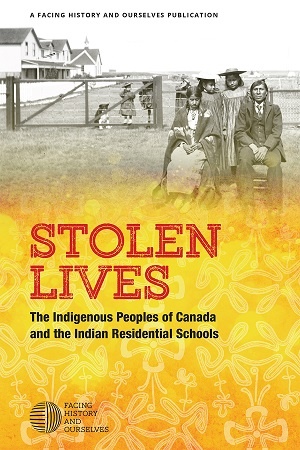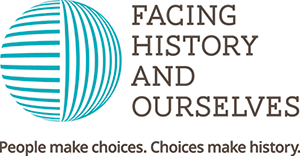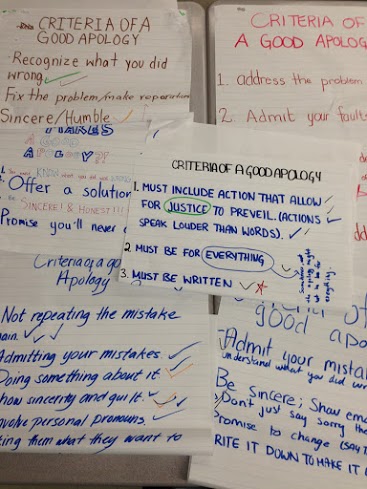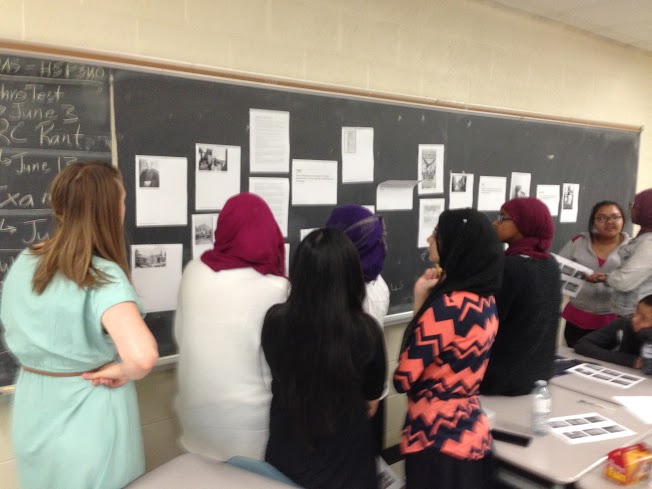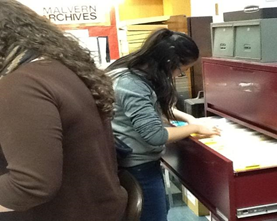Stolen Lives: The Indigenous Peoples of Canada and the Indian Residential Schools is Facing History Canada’s latest resource. During August 2016, a number of teachers from across Ontario participated in a three-day summer institute in Ottawa to learn how to improve and enhance current teaching practices in relation to studies of the Indigenous Peoples in Canada and using Stolen Lives in their classrooms.
Learning to Teach about Reconciliation: A report from Facing History and Ourselves' 2016 Summer Institute
Posted by Jse-Che Lam on November 9, 2016
Topics: Truth and Reconciliation, CHG, CHC, summer institute
Let's Play Ball: Recognizing Indigenous Territory at Blue Jays Games
Posted by Cheryl Payne on October 14, 2016
It’s playoff time! Toronto is welcoming the Cleveland Indians for the American League Championship Series, and things are stirring on social media. Why hasn’t Cleveland changed their name? For years, they’ve been using culturally insensitive names; and as Canadians, we can no longer stand by the degradation of Indigenous culture and beliefs.
Topics: News, Canada, Truth and Reconciliation, Indigenous History, Indigenous, trc
Introduction: My Residential School unit was largely based on the Residential School Lessons for the Genocide Elective set out by Cheryl Payne. I simply tweaked them a little bit to suit my classes. I taught this unit last year in April. The main areas of change were primarily how I prepared and debriefed the students to see the NFB movie We Were Children. The other change was including a summative assignment based on the questions found in Facing History and Ourselves’ book Stolen Lives. Creating this summative assignment was a great experience in professional collaboration as all of the history teachers at my school collectively designed it.
Topics: Teaching Strategies, Teaching Resources, Residential Schools, CHG, CHC, trc
This summer I went to Europe with my nieces. We visited Zurich, Krakow, Prague and Berlin. My suitcase unfortunately did not make the journey with me. At each stop, I updated Swiss Air about my location. It took 8.5 days (of the 10 we were there) for my suitcase to meet up with me. I was annoyed, and eventually had to purchase clothing in each town, and do some hand-washing to have clean clothing!
"Creating a Culture of Caring Through Reconciliation as a Non-Indigenous Teacher": An Interview with Nathan Tidridge
Posted by Alysha Groff on September 13, 2016
As part of Facing History and Ourselves three day summer seminar "CHC2 Canadian History through a Facing History Lens", Nathan Tidridge came to speak about "Creating a Culture of Caring Through Reconciliation as Non-Indigenous Teacher."
If you were unable to attend and would like to see the talk it was streamed and can be accessed on Periscope.
Following the event I had a chance to catch up with Nathan and talk to him a little bit about his experiences teaching difficult content in the highschool classroom. Whether or not you were able to attend this great talk, take a look at the following interview and consider the following:
1. How could you use the information in this interview to better your own teaching practice?
2. How might this interview help you contextualize the importance of addressing the TRC calls to action for your department and school?
3. How could the interview be used to help inspire and build confidence in educators to incorporate Indigenous Studies into their classrooms?
Hello and Goodbye from your Facing History and Ourselves Canada Program Associates
Posted by Jasmine Wong on September 8, 2016
Indigenous Cultures, Language, and the TRC through an Anthropological Lens (Part 2)
Posted by Mike Elias on July 11, 2016
Throughout the unit we had students critically reflect at the end of each lesson on what was covered and fill out a Connect- Extend- Challenge worksheet. This activity extends beyond the traditional K-W-L chart as students reflect upon previous learning, using it to foster further discussion and guide inquiry.
Indigenous Cultures, Language, and the TRC through an Anthropological Lens (Part 1)
Posted by Kristen Drury on July 4, 2016
Indigenous Canadians and their cultures should not remain solely in Canadian history courses. They are not extinct, they are not remnants of our past; they are living, breathing, human beings that should have the ability to contribute to our contemporary discourse. Their voices are vital to understanding the Canada that we live in today, and the Canada that we want to live in the future. We feel that students should be exposed to their narrative through a variety of social science and historic lenses in order for us as Canadians to move towards reconciliation. Furthermore, Indigenous studies should not be a “token” topic on a worksheet or organizer. It should be give the same time and examined in as much depth as any other major topic in the curriculum. With this in mind, our goal for our grade 11 social science course “Introduction to Anthropology, Sociology and Psychology” was to find a way to include Indigenous voices, allowing students opportunities to grapple with historic and contemporary issues. Through private reflection, students were very open about their unintentional ignorance and embraced the challenge and opportunity to explore the First Nations, Metis and Inuit Peoples in Canada. It is with this in mind, that we incorporated the resource Stolen Lives as a focal point for our cultural anthropology sub- unit.
Ever since I realized Malvern had their own archives, I have wanted to figure out how to use them in my Grade 10 Canadian History class(es). The “how” was key because I wanted to make the learning and use of archives authentic and also provide learning to meet curriculum expectations at the same time.
Topics: Critical Thinking, Inquiry, Grade 10 History
During the March Break of 2016, a group of 31 students from three Toronto District School Board schools travelled to Germany, Czech Republic and Poland to learn about the history of Jewish life in Europe, and the Holocaust.



